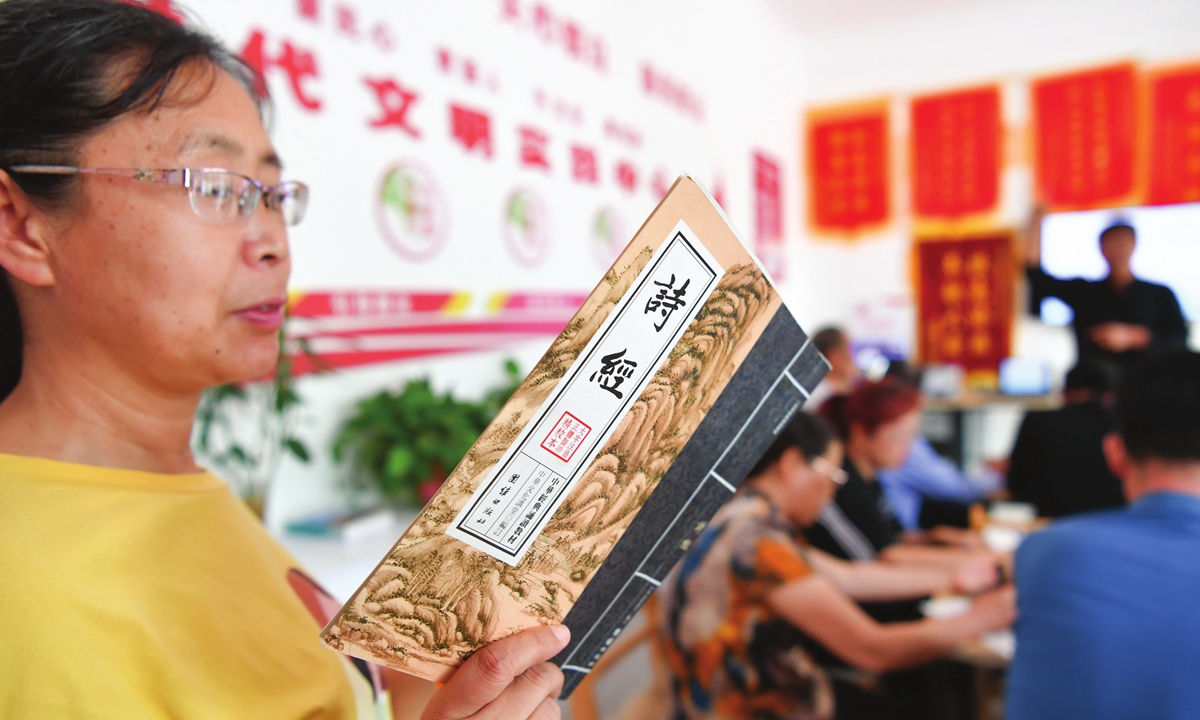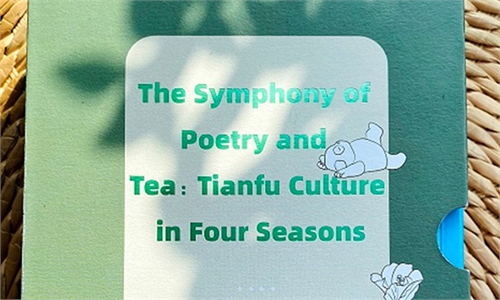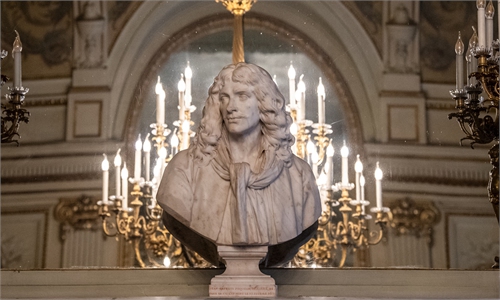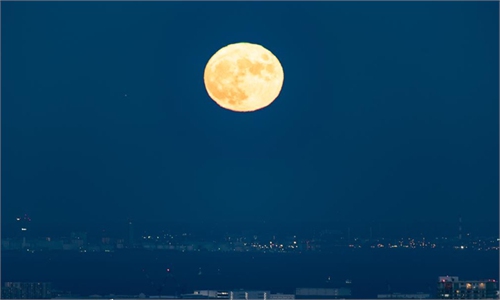ARTS / CULTURE & LEISURE
China in Ancient Books

A person reads The Book of Songs. Photo: IC
'The Book of Songs': China's first ancient poetry anthology literatureEditor's Note:
Ancient Chinese classics are like encyclopedias that cover various subjects such as literature, art, traditional Chinese medicine and folk customs. As TV shows such as China in the Classics have become popular, the stories behind the Chinese classics have become known by more audiences.
In this new column, "China in Ancient Books," the Global Times will introduce some of the most popular Chinese classics.
For each column, Global Times writer Liu Yanling will talk about the background and stories in each book as well as their cultural influence on modern times.
The Book of Songs marked the beginning of ancient Chinese poetry. It is the earliest anthology of poems from the early Western Zhou Dynasty (1046BC-771BC) to the Mid-Spring and Autumn Period (770BC-476BC).
Containing a total of 311 poems, it is divided into three sections: Feng (ballads from various regions in the Zhou Dynasty), Ya (music for banquets or ceremonies) and Song (ritual music of the Zhou Dynasty). It is known for its rich content and simple and natural style, covering all social aspects of the people in northern China such as romance, customs, rituals, geography, plants and animals as well as labor work, statute labor, and war.
In the Zhou Dynasty, a system for collecting poems was established. Every spring officials would go and collect ballads and turn them over to imperial musicians to compose songs, which would then be presented to kings as reference for governance. Those musical works account for the majority of The Book of Songs, such as the "15-State Ballads."
Although the author of The Book of Songs was anonymous, it was always believed to have been compiled by Confucius. Verses from the book were often quoted by philosophers at that time such as Mencius, Hsun Tzu and Mo-tze to strengthen their arguments. In the Western Han Dynasty, The Book of Songs was honored as one of the Five Confucian Classics created before the Qin Dynasty (221BC-207BC).
Nowadays, The Book of Songs is widely quoted in modern literature, and some of the verses are still popular among many Chinese. For example, a famous verse from the poem entitled "Cooing and Wooing," translated by famous Chinese translator Xu Yuanchong, goes:
"By riverside a pair, Of turtledoves are cooing;
There is a maiden fair, whom a young man is wooing."



